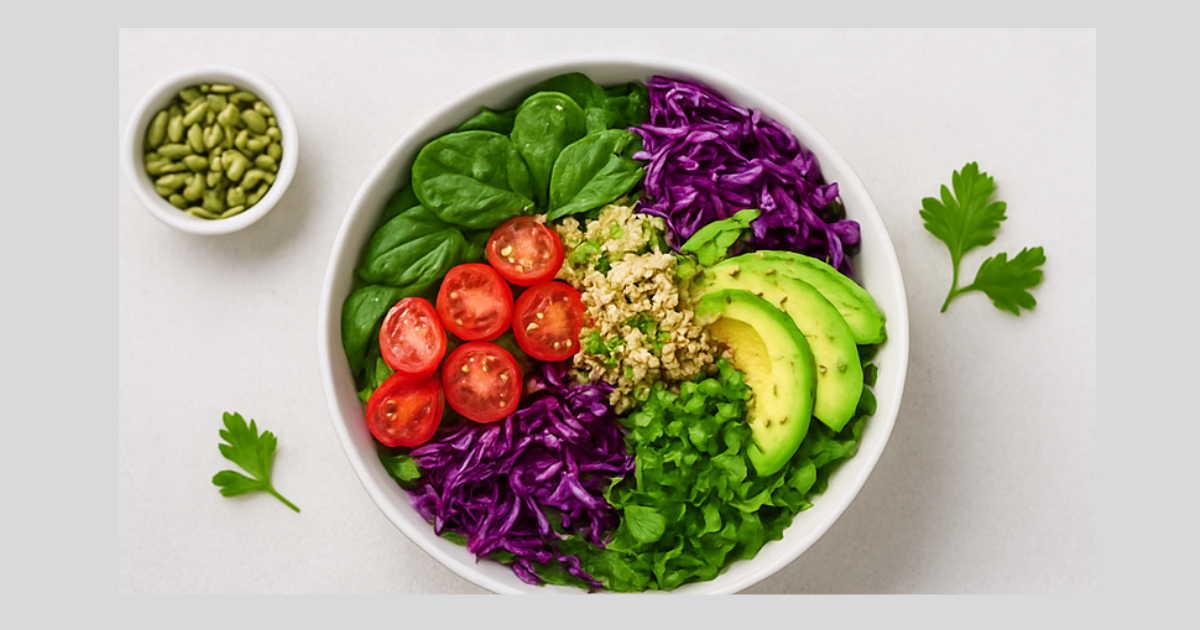Understanding Gut Health in 2025
A healthy gut is the cornerstone of overall well-being. In 2025, the connection between diet and digestive wellness is stronger than ever. The gut, often called the “second brain,” houses trillions of bacteria—collectively known as the gut microbiome—that play a vital role in digestion, immunity, and even mood regulation.
The Gut Microbiome Explained
Your gut microbiome consists of beneficial bacteria that help break down food, produce vitamins, and fend off harmful pathogens. When balanced, it keeps your digestive system running smoothly. However, poor diet choices and high stress can disrupt this balance, leading to bloating, fatigue, and inflammation.
Common Signs of Poor Gut Health
Some common red flags include:
- Constant bloating or irregular bowel movements
- Unexplained fatigue or brain fog
- Skin breakouts and inflammation
- Cravings for sugar and processed foods
Recognizing these signs early allows you to make changes before chronic issues develop.
Why Gut Health Is More Important Than Ever in 2025
Modern life brings unique challenges—processed foods, sedentary habits, and high stress all harm gut flora. But the good news? Researchers have identified precise dietary patterns that can restore your microbiome naturally.
The Link Between Gut Health and Mental Health
Science now confirms the gut-brain connection: your digestive tract communicates directly with your brain via the vagus nerve. Balanced gut bacteria can enhance mood, reduce anxiety, and even improve sleep quality.
Modern Challenges to Gut Health
Antibiotics, artificial sweeteners, and environmental toxins all contribute to microbial imbalance. That’s why the 2025 gut health diets emphasize whole, organic, and minimally processed foods.
Top Foods for a Healthy Gut
Your gut thrives on diversity and natural ingredients. Here are the most beneficial foods:
Probiotic-Rich Foods
- Yogurt and kefir: Boost healthy bacteria
- Sauerkraut and kimchi: Add beneficial microbes
- Kombucha: A fermented tea that supports digestion
Prebiotic Superfoods
Prebiotics feed probiotics—together, they form the perfect team.
- Garlic
- Onions
- Asparagus
- Bananas
- Oats
Fiber-Packed Favorites
A fiber-rich diet enhances digestion and reduces inflammation:
- Lentils, chickpeas, and beans
- Whole grains like quinoa and barley
- Colorful fruits and leafy greens
Popular Gut Health Meal Plans for 2025
The Mediterranean Gut Diet
This classic plan remains a top pick for 2025. Rich in olive oil, fish, nuts, and vegetables, it’s proven to increase beneficial bacteria and reduce inflammation.
The Plant-Based Microbiome Plan
Focuses on whole, plant-based foods. This plan is rich in antioxidants, fiber, and natural prebiotics, ideal for those seeking long-term gut health.
The Low-FODMAP Revolution
Designed for people with IBS or sensitive digestion, this plan limits fermentable carbs to minimize bloating and discomfort.
Key Benefits of a Gut Health Diet
- Better Digestion: Better absorption of nutrients, less bloating, and regular bowel motions.
- Boosted Immunity: Over 70% of your immune system resides in your gut.
- Enhanced Mood & Focus: A healthy gut promotes serotonin production.
- Glowing Skin: Reduced inflammation leads to clearer, healthier skin.
Sample 7-Day Gut Health Meal Plan (2025 Edition)
| Day | Breakfast | Lunch | Dinner | Snack/Drink |
| Monday | Kefir smoothie | Quinoa salad | Grilled salmon + greens | Kombucha |
| Tuesday | Overnight oats | Lentil soup | Stir-fry veggies | Berries |
| Wednesday | Chia pudding | Chickpea wrap | Tofu bowl | Yogurt |
| Thursday | Green smoothie | Miso soup | Brown rice + veggies | Herbal tea |
| Friday | Fruit parfait | Roasted veggie wrap | Mediterranean fish | Nuts |
| Saturday | Avocado toast | Buddha bowl | Grilled chicken | Sauerkraut |
| Sunday | Oat pancakes | Bean chili | Sweet potato bowl | Kombucha |
Expert Tips to Maintain a Healthy Gut Long-Term
- Hydrate regularly – Water aids digestion and nutrient transport.
- Eat slowly – Mindful eating enhances nutrient absorption.
- Manage stress – Chronic stress disrupts microbiome balance.
- Stay active – Regular movement supports digestion.
- Limit antibiotics & alcohol – Both can harm gut flora.
FAQs About Gut Health Diets
Q1. What is the fastest way to improve gut health in 2025?
A: Incorporate fermented foods, fiber-rich vegetables, and reduce processed sugar.
Q2. How long does it take to heal the gut?
A: Most people see improvement in 2–4 weeks of consistent diet changes.
Q3. Are probiotics necessary?
A: Not always. You can get natural probiotics from fermented foods.
Q4. Can I follow a gut health diet if I’m vegan?
A: Absolutely! Focus on plant-based prebiotics like oats, bananas, and beans.
Q5. Does gut health affect weight?
A: Yes. A balanced microbiome regulates metabolism and appetite.
Q6. Is kombucha good for gut health?
A: Yes, when consumed in moderation. It provides live bacteria beneficial for digestion.
Conclusion
In 2025, the path to a healthier gut is clearer than ever—nourish your microbiome with whole foods, balanced meals, and mindful habits. Whether you choose the Mediterranean, plant-based, or low-FODMAP plan, consistency is key.
A healthy gut means better digestion, stronger immunity, and a happier mind.

